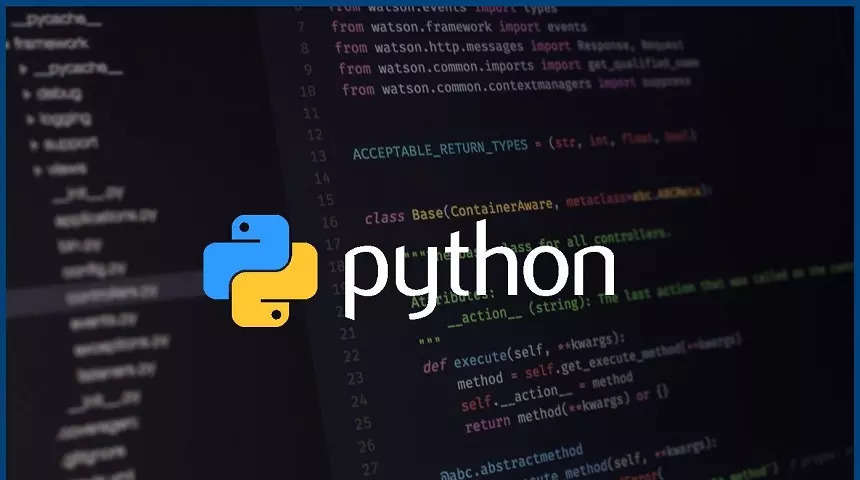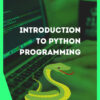Category: Coding
Exploring the Hypothetical: English as a Programming Language
In the ever-evolving landscape of technology, the prospect of English becoming a programming language sparks curiosity and intrigue. While this notion may seem unconventional, imagining English as a programming language offers a unique opportunity to explore its implications, challenges, and potential advantages. In this article, we delve into this hypothetical scenario by presenting five sample programs in English-like pseudocode, followed by their equivalent implementations in Python. Furthermore, we perform a comparative analysis to highlight the differences and similarities between the two approaches.
Understanding User Context: Unveiling the Richness of Personalized Experiences in Programming
User context encompasses a wide range of information that enables developers to create highly personalized and engaging experiences. By understanding user preferences, behavior, mood, location, intention, and activity, developers can adapt interfaces, content, and functionalities to meet users’ unique needs. Python’s versatility in representing and processing data structures allows developers to harness the power of user context effectively. By incorporating user context into programming, developers can unlock the potential to deliver exceptional user experiences and build long-lasting connections with their user base.
Design Features for a Yoga Assistant Web App: Harnessing the Power of AI Techniques
The convergence of technology and wellness has given rise to innovative solutions that enhance various aspects of our lives. One such solution that is revolutionizing the world of yoga is the Yoga Assistant Web App. By incorporating artificial intelligence (AI) techniques, this app leverages cutting-edge technology to provide personalized guidance, real-time feedback, and a transformative yoga experience. In this article, we will explore the design features that make a Yoga Assistant Web App using AI techniques a valuable tool for practitioners.
The Evolution of Coding Efficiency: How OpenAI Transformed Development Time
OpenAI has ushered in a new era of coding efficiency, substantially reducing the time required for manual coding tasks. Developers can now generate code snippets and receive intelligent suggestions in a matter of minutes, empowering them to focus on higher-level design aspects. Nevertheless, the increased complexity of AI-generated code calls for an extended debugging phase to ensure code quality and reliability. OpenAI’s contributions to the world of software development highlight the immense potential of AI and ML in streamlining coding processes while also emphasizing the need for rigorous debugging practices. As technology continues to evolve, OpenAI’s innovations will undoubtedly shape the future of coding and pave the way for even greater efficiency and productivity in the development community.
Python and JavaScript: The Dynamic Duo Empowering the World of Programming
Python and JavaScript have undoubtedly become the dynamic duo in the world of programming. Their individual strengths, combined with their ability to complement each other, make them a formidable force in building innovative and powerful solutions. As the programming landscape continues to evolve, Python and JavaScript will remain indispensable tools for developers, providing endless possibilities and shaping the digital world we live in. Whether you’re a seasoned programmer or just starting your coding journey, embracing the dynamic duo of Python and JavaScript will undoubtedly open doors to exciting opportunities and fuel your passion for creating transformative software.
The Algorithmic Dominion: How Algorithms Are Quietly Controlling Our World
Algorithms have quietly assumed control over vast domains of our lives, shaping our choices, perceptions, and interactions. Acknowledging their presence and influence is the first step towards navigating the complexities they bring. As we navigate this algorithmic dominion, it is crucial to foster transparency, ethical guidelines, and public discourse to ensure that algorithms serve humanity’s best interests rather than dictating our fate
Python match case statement
Starting from Python 3.10, a new feature called “match” and “case” has been introduced in Python. The “match” statement allows you to perform pattern matching on values, similar to a switch statement in other programming languages. Here’s an example program that demonstrates the usage of “match” and “case” in Python:
Python Cheat sheet
A Python cheat sheet is a quick reference guide that summarizes the most important features of the Python programming language. It typically includes information on syntax, data types, control structures, functions, and modules, among other things.
Introduction to Python Programming
Python is a high-level, interpreted, and general-purpose programming language that was first released in 1991 by Guido van Rossum. It has become one of the most popular programming languages in the world due to its simplicity, readability, and versatility. Python is often used for web development, scientific computing, data analysis, artificial intelligence, and automation.
Authors : Dr.Thyagaraju GS and Palguni GT [E- Book : As per the Latest syllabus of VTU- Belagavi and all Autonomous and Deemed to be Universities .]
Introduction to C Programming
C is a high-level, general-purpose programming language that was originally developed at Bell Labs by Dennis Ritchie in the 1970s. It is a structured, imperative, procedural, and compiled language that is widely used for system programming, embedded systems, and other applications that require efficient low-level access to hardware and memory.
4 Books to MASTER Python
Learning Python is a valuable skill for anyone interested in pursuing a career in technology or simply wanting to improve their problem-solving skills. It is a versatile language that can be used for a wide range of purposes, from web development and data analysis to artificial intelligence and scientific computing.
Towards Contextual Conscious Quantum Artificial Intelligence with Python
Humans are unique as compared to other animal beings in learning and applying the learned knowledge to provide best solutions for real time problems. Trends in technologies are progressing in such a way that in future, human created systems will gradually acquire human capabilities like Contextual Consciousness and Intelligence. Context represent the situation of an entity of interest. Contextual Consciousness represents the ability of being aware/conscious about the context of entity and its surroundings. And intelligence represents the ability to apply the knowledge to perform actions under given context in a given environment. These 2 qualities, Contextual Consciousness and Intelligence, are so much important and complex that even human beings require a lot of hard work, training and practice to possess and apply them judiciously.















